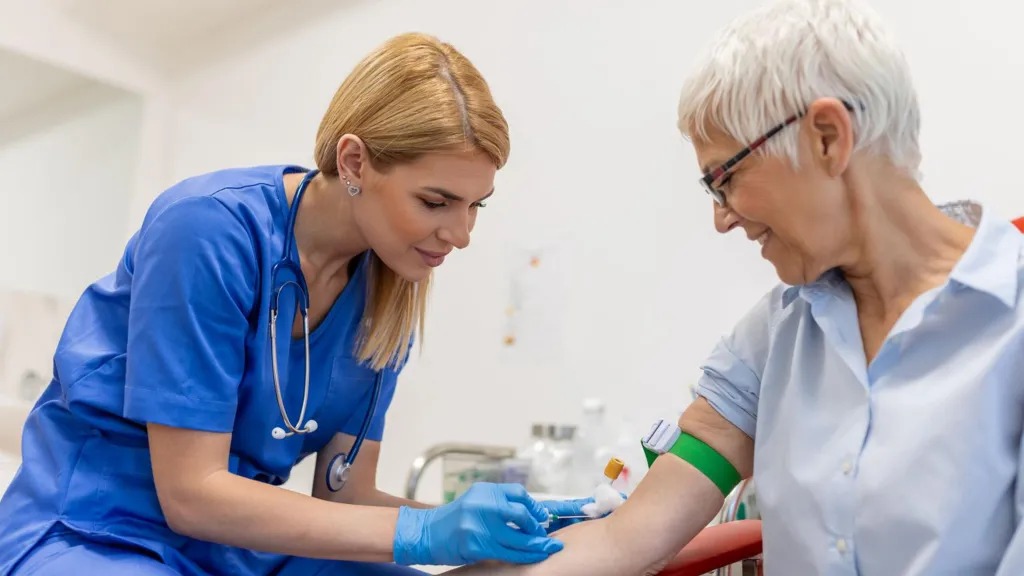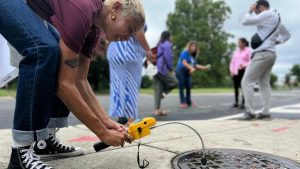
AI-Powered Blood Tests: Transforming Early Detection
Artificial intelligence (AI) is revolutionizing medical research and treatments, particularly in blood tests for early disease detection. Researchers are leveraging AI to identify subtle biomarkers in blood samples, enabling the detection of diseases such as ovarian cancer and pneumonia in their earliest stages.
Dr. Daniel Heller, a biomedical engineer at Memorial Sloan Kettering Cancer Center, is leading a team developing nanotube-based blood tests. These tests use AI to decode complex patterns in the data, identifying potential warning signs of ovarian cancer. Early detection is crucial, as ovarian cancer often spreads before symptoms appear.
The Role of AI in Ovarian Cancer Detection
Ovarian cancer is rare, which limits the availability of training data for AI algorithms. Despite this, Dr. Heller’s system achieved better accuracy than existing biomarkers on its first attempt. AI processes millions of data points, identifying patterns too subtle for humans to discern.
Dr. Heller envisions a future where AI-driven tools can triage gynecological diseases, aiding doctors in distinguishing between benign and malignant conditions. However, challenges such as limited data sharing and small sample sizes remain significant obstacles.
AI Accelerating Blood Tests for Pneumonia
Beyond cancer, AI is expediting blood tests for potentially fatal infections like pneumonia. Karius, a California-based company, uses AI to identify pneumonia pathogens within 24 hours, a process that previously required 15 to 20 tests and incurred high costs.
By comparing patient samples to a vast database of microbial DNA containing billions of data points, Karius pinpoints the exact pathogen. This precision enables doctors to prescribe targeted antibiotics, saving both time and money.
AI’s Broader Impact on Medical Research
AI platforms like Milton, developed by Dr. Slavé Petrovski at AstraZeneca, analyze biomarker patterns in large datasets such as the UK Biobank. Milton has achieved a 90% success rate in identifying 120 diseases. This underscores AI’s ability to process complex patterns that traditional methods cannot.
However, the lack of widespread data sharing poses a challenge. Organizations like the Ovarian Cancer Research Alliance (Ocra) are funding large-scale patient registries to address this gap. Ms. Audra Moran, Ocra’s head, notes that these efforts are critical to advancing AI’s capabilities in healthcare.
External Link: Read more on AI breakthroughs at BBC News.
Internal Link: Explore advancements in medical AI at Kenkou Land.





